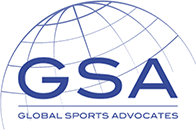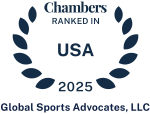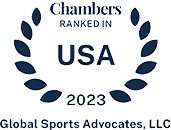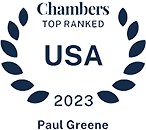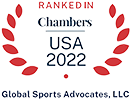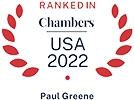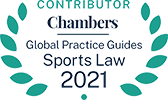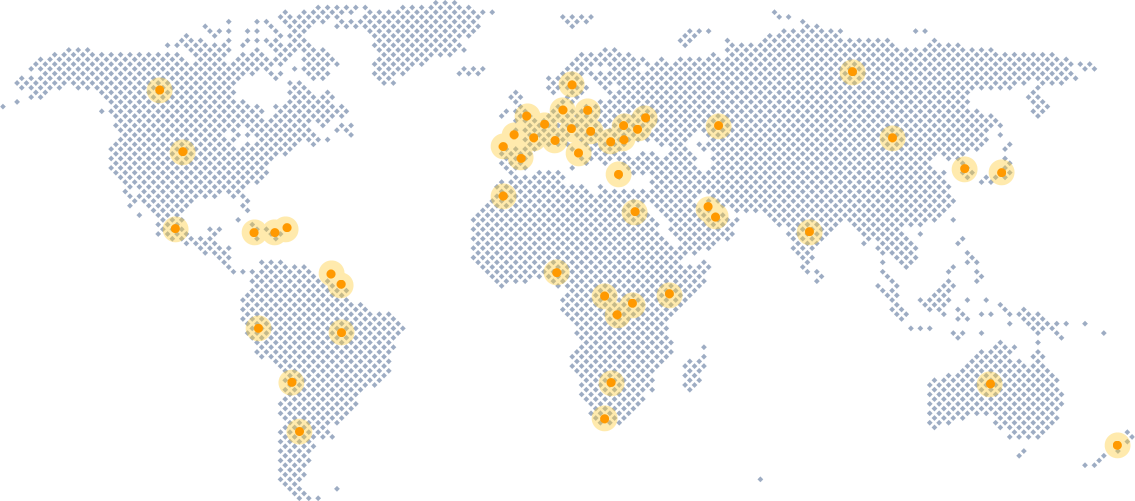 The World Anti-Doping Agency (WADA)’s Prohibited List is a mandatory International Standard of the World Anti-Doping Program that identifies not only the types of substances and methods that will trigger an anti-doping rule violation but also whether the prohibited substance or method is specified or non-specified—a critical distinction that can have significant consequences on the length of sanction an athlete faces for an anti-doping rule violation.
The World Anti-Doping Agency (WADA)’s Prohibited List is a mandatory International Standard of the World Anti-Doping Program that identifies not only the types of substances and methods that will trigger an anti-doping rule violation but also whether the prohibited substance or method is specified or non-specified—a critical distinction that can have significant consequences on the length of sanction an athlete faces for an anti-doping rule violation.
Under the World Anti-Doping Code, including a substance or method on the Prohibited List and its classification as specified and non-specified is final and cannot be challenged.
Specified Substances Under WADA
Specified substances and methods that WADA considers more likely to have been consumed or used by an athlete for a purpose other than the enhancement of sports performance. For example, diuretics and masking agents are classified on the Prohibited List as specified substances since athletes commonly use them to treat various medical conditions rather than for performance-enhancing purposes. Examples of diuretics and masking agents found on the Prohibited List include:
- Desmopressin
- Probenecid
- Plasma expanders, e.g., intravenous administration of albumin, dextran, hydroxyethyl starch, and mannitol
- Acetazolamide
- Amiloride
- Bumetanideanrenone
- Chlortalidone
- Etacrynic acid
- Furosemide
- Indapamide
- Metolazone
- Spironolactone
- Thiazides, e.g. bendroflumethiazide, chlorothiazide and hydrochlorothiazide
- Torasemide
- Triamterene
- Vaptans, e.g. tolvaptan
Penalties for Use of Specified Substances
It is important to remember that even though a substance or method is designated as specified, it isn’t necessarily considered less effective than a non-specified substance or method, and it doesn’t reduce an athlete’s obligation to be responsible for all substances that enter their body.
The standard sanction for an athlete who tests positive for a specified substance is two years; however, because a specified substance is inherently unrelated to enhancing an athlete’s performance, under the World Anti-Doping Code, athletes have the opportunity to receive a greater reduction in their sanction than they otherwise would for a non-specified substance. For example, an athlete who tests positive for a specified substance such as spironolactone can have their sanction reduced to a warning and no period of ineligibility, depending on their degree of fault.
Non-Specified Substances Under WADA
Non-specified substances and methods are those that are most likely used for performance enhancement purposes. For example, anabolic agents, peptide hormones, SARMs, and growth factors, which are all commonly used to improve physique and performance rather than for medicinal purposes, are considered non-specified substances.
Penalties for Use of Non-Specified Substances
Because of the inherent seriousness of these types of substances, a positive test for a non-specified substance typically results in a sanction of four years of ineligibility for a first violation. Athletes have the opportunity to reduce their sanction to levels equivalent to a specified substance if they can prove the non-specified substance came from a contaminated product. Otherwise, the lowest sanction an athlete can receive—assuming they are able to prove they didn’t take the substance with the intent to cheat—is one year.
Substances of Abuse
In addition to the specified and non-specified classifications, certain substances are also classified as substances of abuse. Substances of abuse are those that are “frequently abused in society outside the context of sport.” WADA considers the following to be substances of abuse:
- Cocaine: non-specified stimulant
- Methylenedioxymethamphetamine (MDMA/ecstasy): specified stimulant
- Diamorphine (Heroin): specified narcotic
- Tetrahydrocannabinol (THC): specified cannabinoid
If an athlete can establish a substance of abuse that was used out of competition and unrelated to sports performance, their period of ineligibility will be dropped to three months. It can be reduced even further to one month if the athlete satisfactorily completes an approved substance abuse treatment program.
Are You an Athlete Who Has Been Accused of an Anti-Doping Rule Violation?
If you have been accused of violating anti-doping rules, please contact our International anti-doping attorneys by clicking the button below or by calling us directly at +1-207-747-5899 to schedule a consultation with one of our international anti-doping lawyers.
When it comes to anti-doping rule violations, you simply can't afford to take any chances. Not only are your career and reputation at stake—so are your lifelong dreams. Our firm is devoted to sports law and has represented athletes from over 60 countries spanning nearly every sports category. Let experienced anti-doping attorney Paul Greene help you protect your ability to compete in the sport you love.
